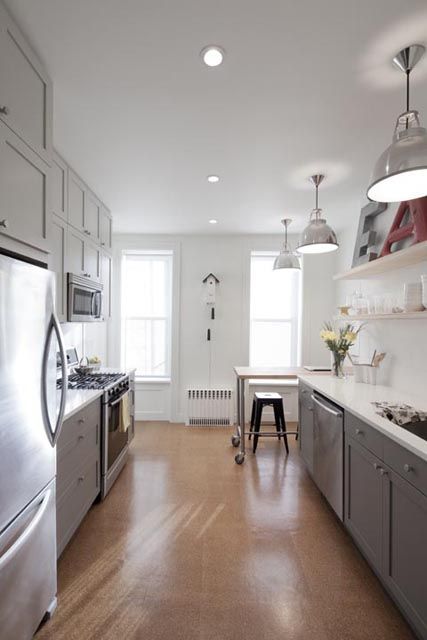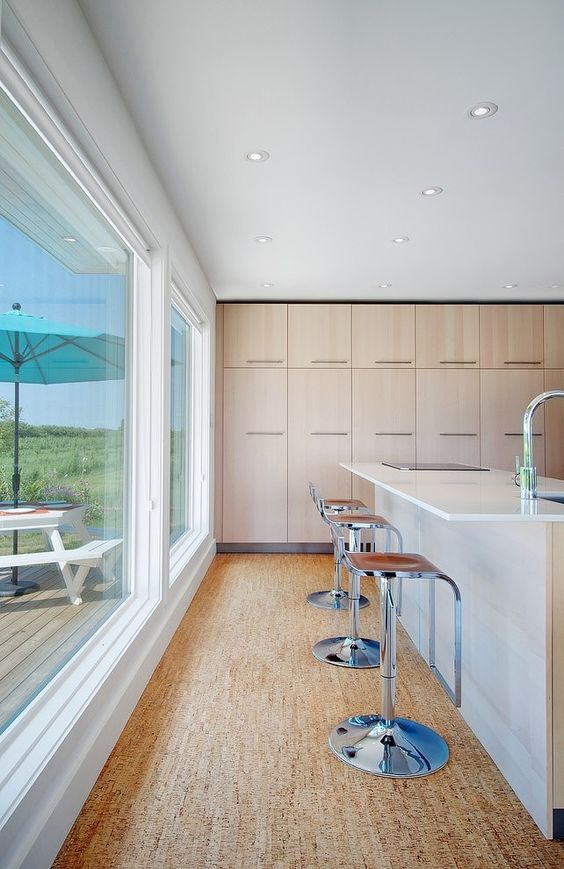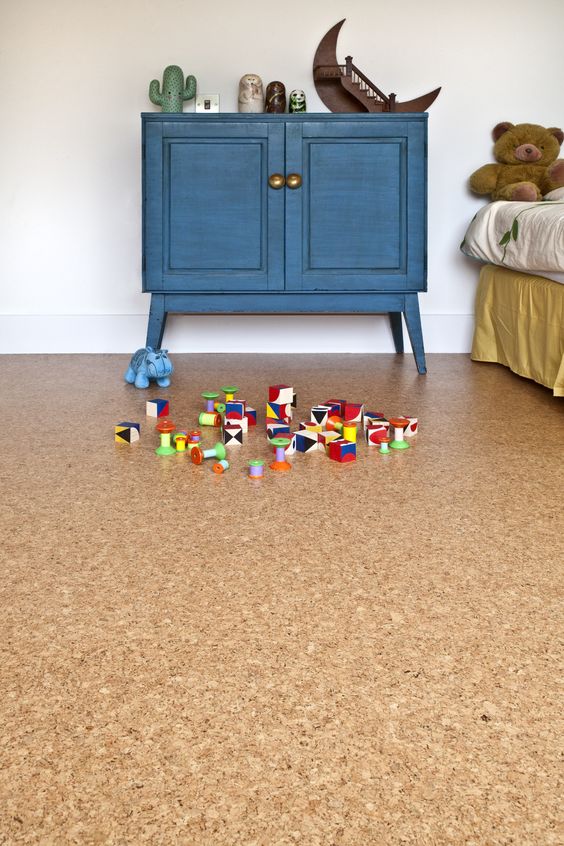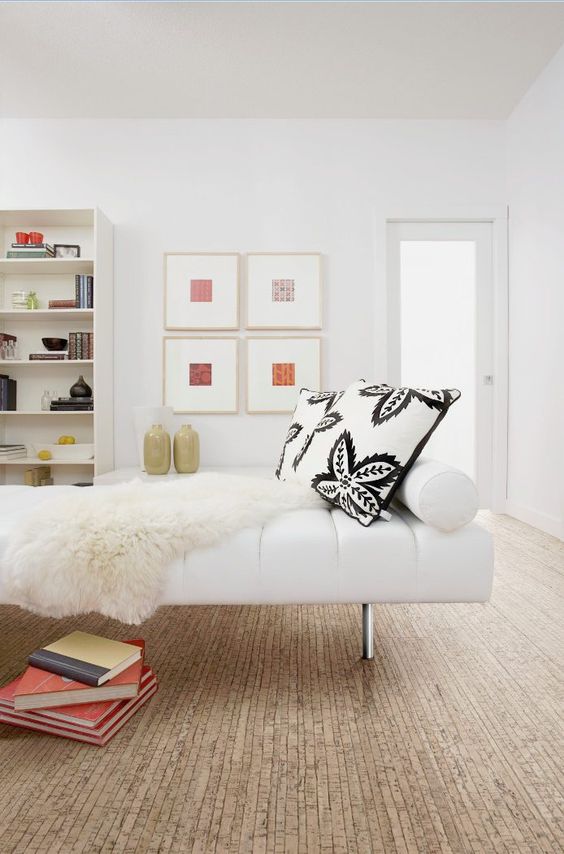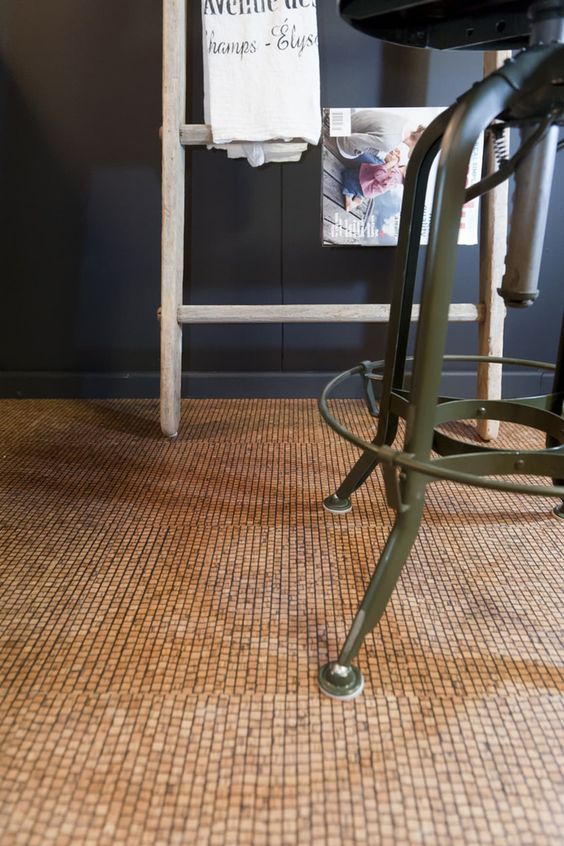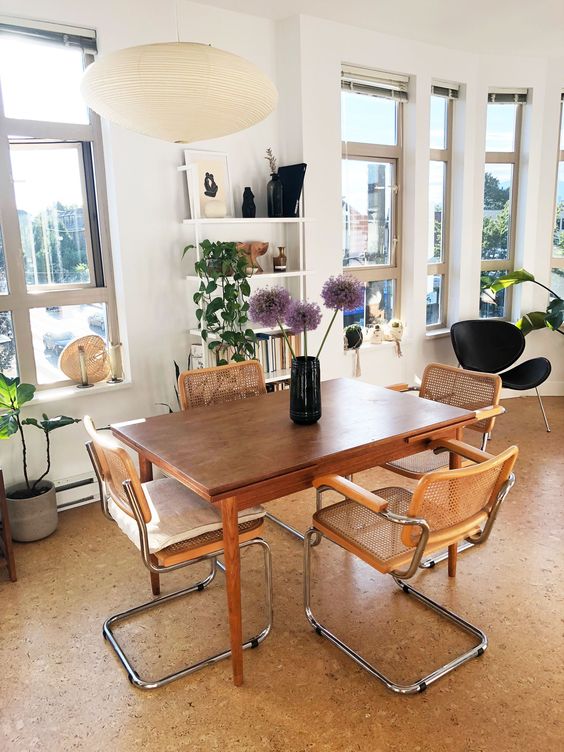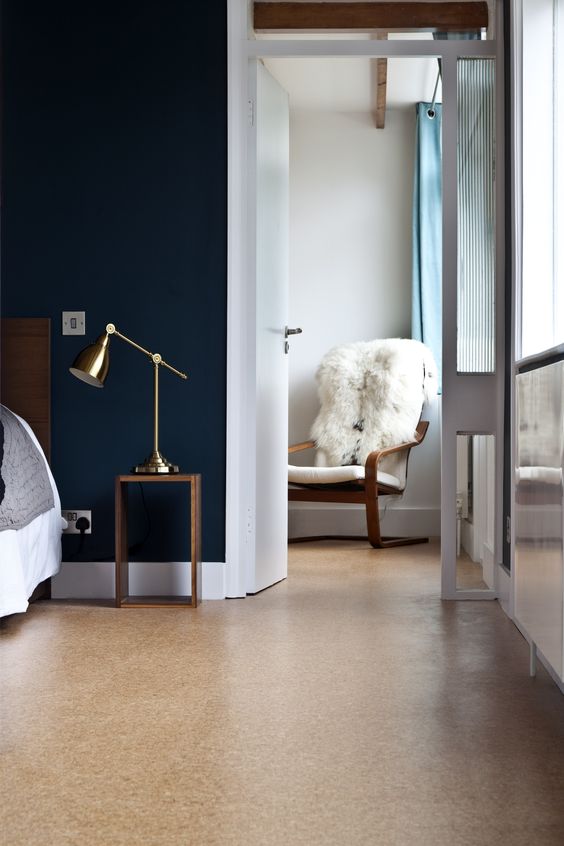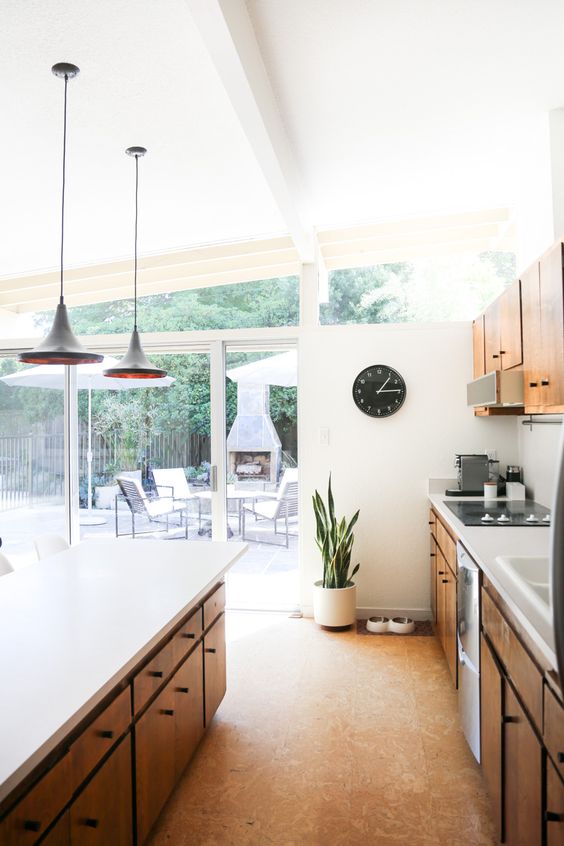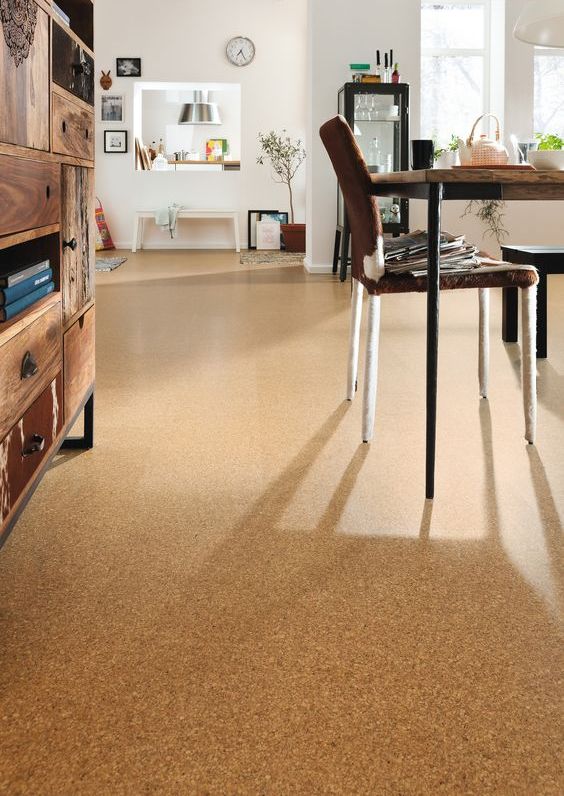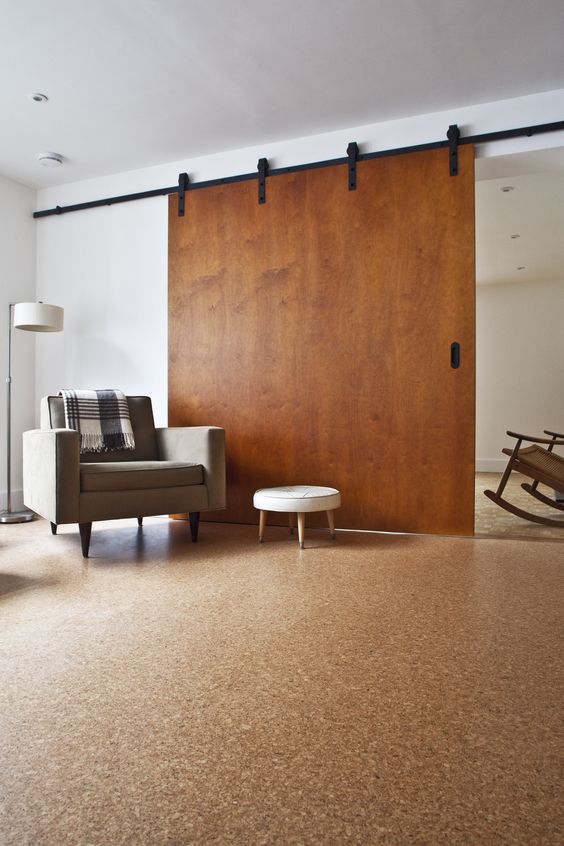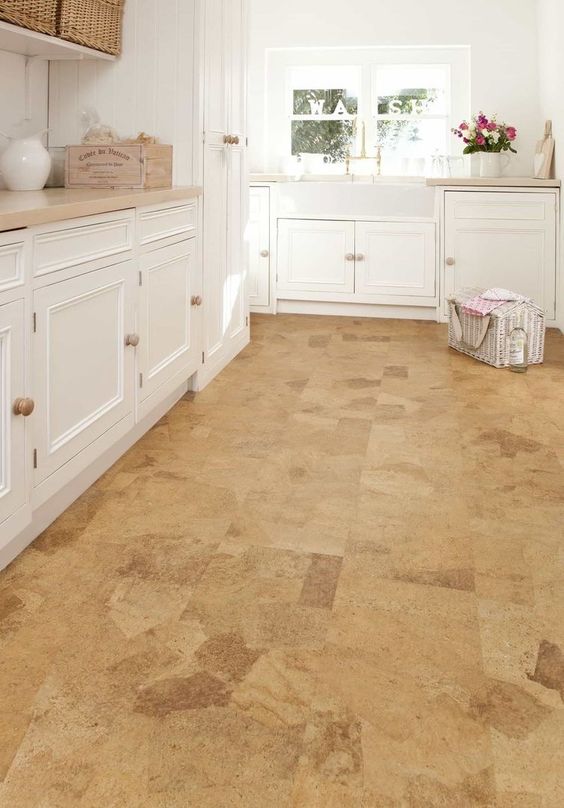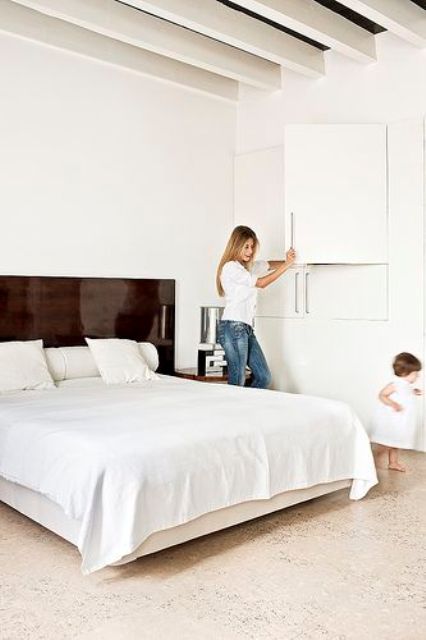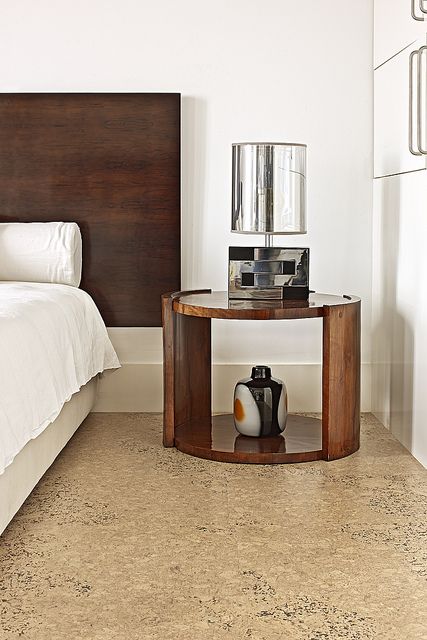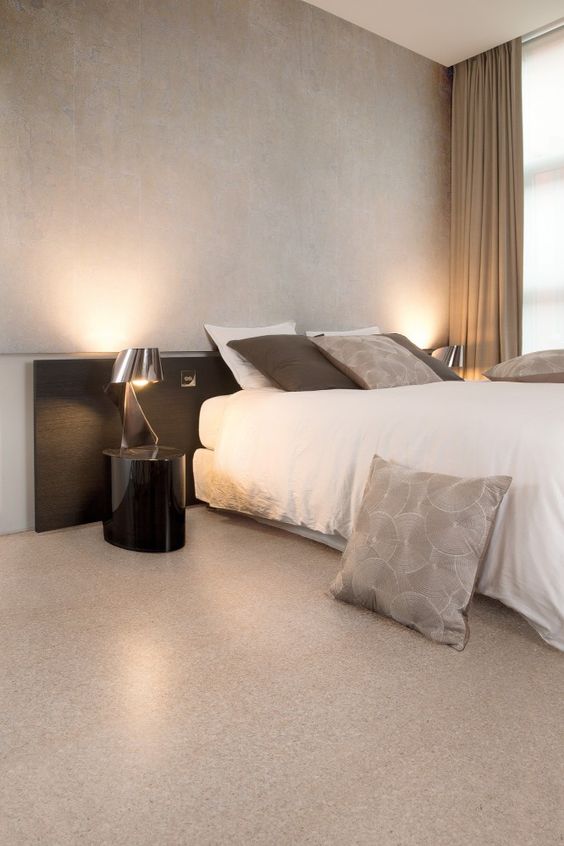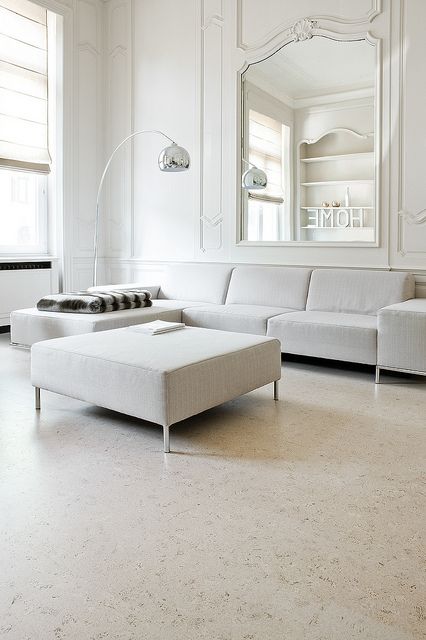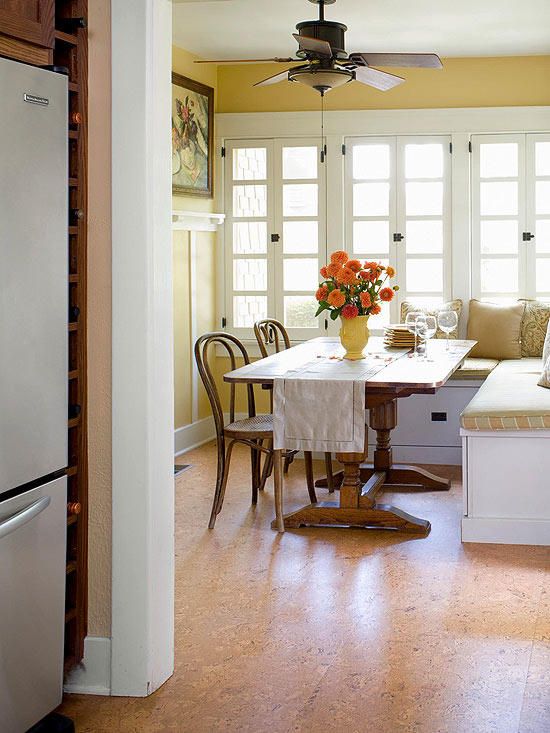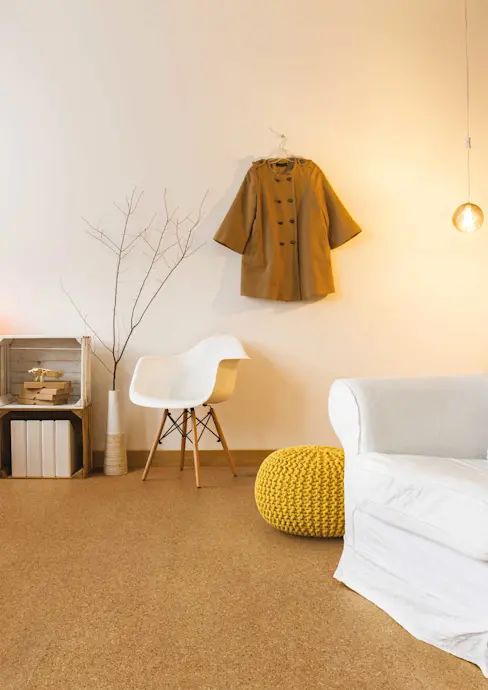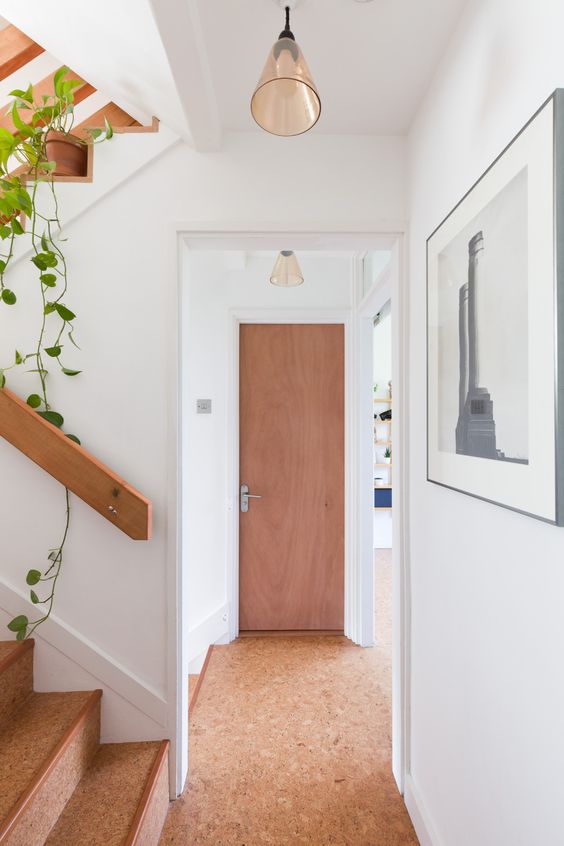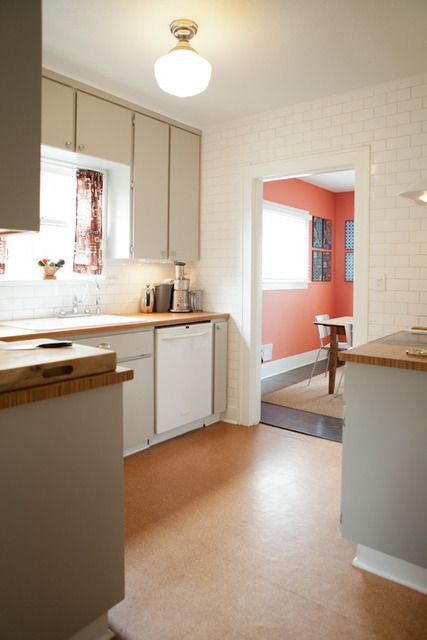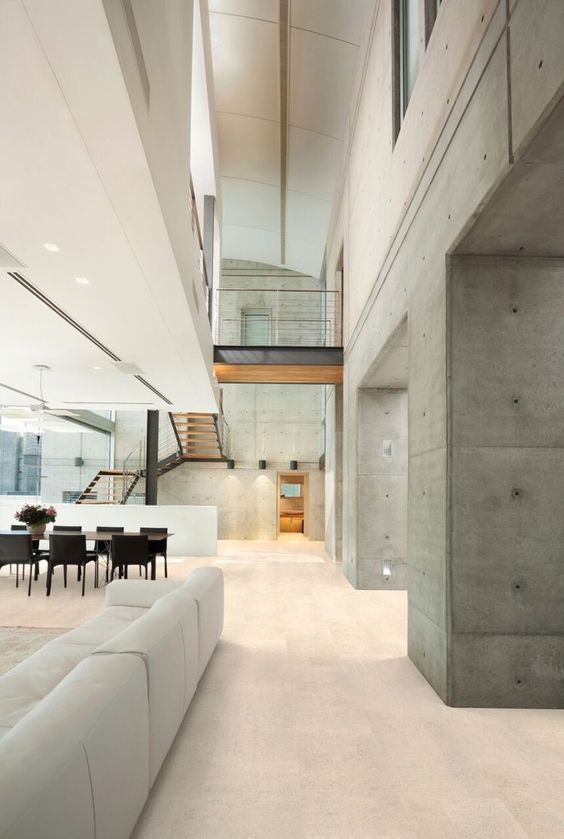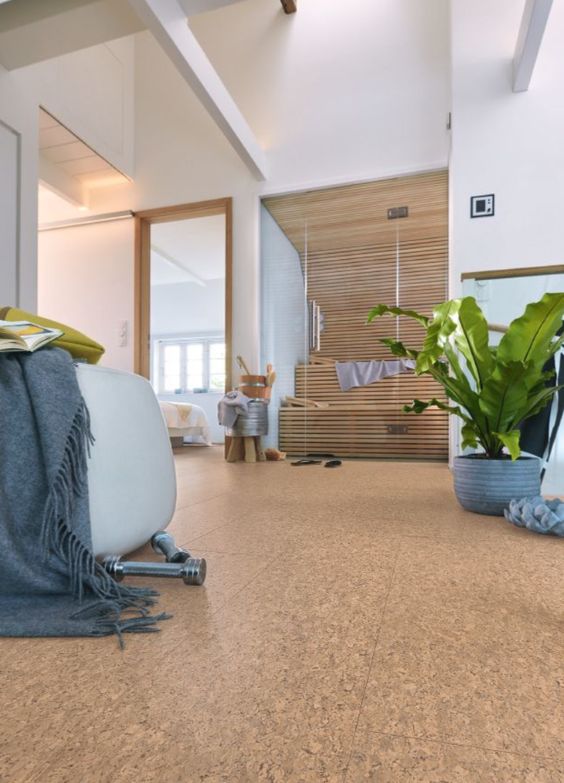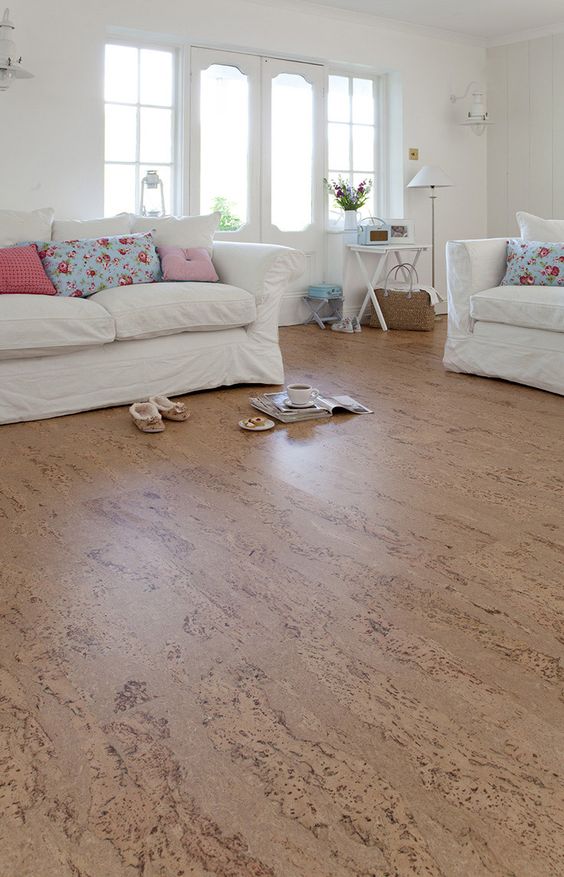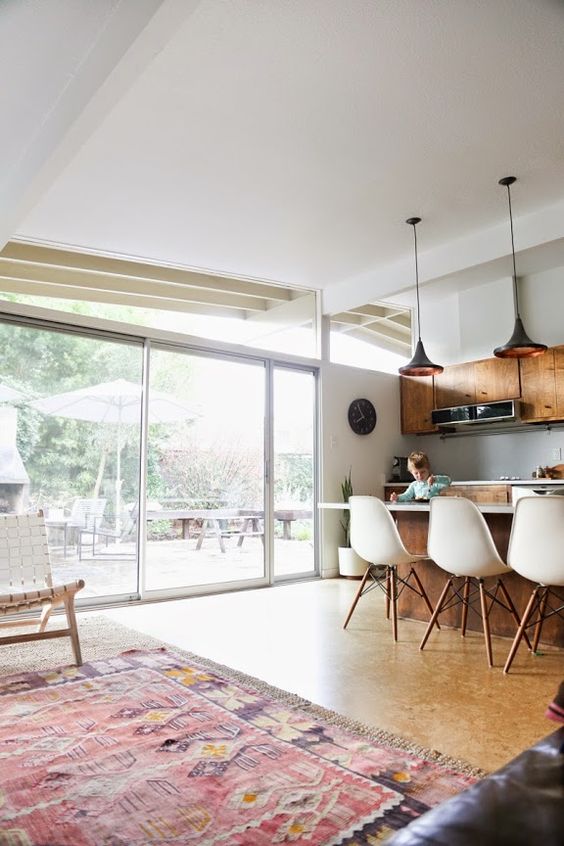Cork comes from the bark of the cork oak tree and cork is, therefore, a completely natural, recurring, and easily replenishable material, that’s why and cause of many other benefits cork flooring is so extremely popular. Still, cork has some disadvantages, too, and we should consider all of them before choosing cork as a flooring material.
Pros Of Cork Flooring
Cork flooring is known for its sound-proofing skills: if you’re forever frustrated by the echo in a room, cork flooring might be the solution you’ve craved. It’s so effective at sound tempering that sound studios have been known to use cork not only on floors, but also as wall paneling and wall interiors.
If you’re the sort of person who feels that shiver right down to the bone when stepping on a cold floor in January, then only carpet beats cork flooring for its warmth, insulating properties of cork are a great advantage for many home owners. Besides, cork flooring is also pretty durable: while dropping something on cork flooring could dent it, it’s also less likely than tile, wood and vinyl to suffer that kind of damage because the floor has a little protective bounce to it. Yes, it’s not as durable as some other types of floor but still rather competitive. Cork may be vulnerable to expansion in excessive humidity or wet spots, but it has antimicrobial properties and is naturally resistant to mildew and mold. And it’s the only flooring that doesn’t attract dust, all of which makes it fantastic for those with allergies. It’s also a fire inhibitor, so it’ll slow the combustibility a bit. Such a naumber of great physical properties already makes cork a great type of flooring!
That natural give with all the minuscule tiny air pockets means cork flooring is the softest of non-carpet or vinyl flooring options. It makes it slightly kinder on the body when walking all day and can be a preferred flooring for people with bone and joint issues. If you suffer achey feet after a day of chores around the house, cork floors are a popular choice that softens the strain while still providing firm support.
Cork is a great investment because it adds to a home’s resale values – most of people like such type of floors and you can often meet them in various homes. Part of that is down to how easy it is to repair sections of the floor (so always buy extra product), and its ability to be sanded and refinished to extend the surface life.
A chic farmhouse kitchen in grey, with a white backsplash and countertops, a cork floor, pendant metal lamps and built-in lights.
A creative bathroom with white brick walls and a cork wall, a vintage tub, a stand and a dark stained storage unit and potted plants.
A glazed wall, a white kitchen island, tall stools placed on the cork floor that adds interest and warmth here.
A kid's space with white walls and a cork floor, a bed and a blue cabinet, colorful toys and bold decor is a veyr cute room.
A lovely contemporary space with white walls and a cork floor, white and creamy furniture and rugs, printed pillows and a mini gallery wall.
A lovely textural cork floor like this one will feel natural, warm and will make the room very welcoming and cool.
A mid-century modern dining room with a row of windows, a stained table and rattan chairs, potted plants and decor.
A minimalist bedroom with white walls, a cork floor, white shelves and pastel bedding is a welcoming and veyr airy room.
A modern bedroom with navy walls, a cork floor, chic furniture and touches of brass is an amazing space.
A modern kitchen with white walls, a glazed one, a cork floor, stained wooden cabinetry and pendant lamps is amazing.
A modern living room with a reclaimed wood wall, a cork floor, an open shelving unit, potted plants and vases.
Cons Of Cork Flooring
The list of disadvantages is short with cork flooring, with perks being many. Among the reasons you could be resistant to cork would be price. It’s more costly, but like any good hardwood flooring product, it can often be refinished after a couple decades.
It also has a history of being vulnerable to high traffic, scratching and scuffs because it’s made with millions of air pockets that make it more vulnerable to walking and scraping from heavy furniture and pets’ claws. Some companies now make anti-scratch cork flooring, which help alleviate those concerns, but those millions of air pockets are going nowhere, so its innate vulnerabilities remain.
The softer nature of cork flooring has many appeals, but when resale value can be affected by a decline in appearance, it’s less optimal for heavy traffic, large dogs with unclipped nails or particularly rambunctious kids. Consider all these points to decide – are you going cork or not?
A modern open space with white walls and cork flooring, dark stained chic furniture and potted plants and lots of natural light.
A modern space with white walls, cork flooring, a modenr chair and a stool, a sliding barn door is chic.
A neutral living room with neutral walls, a cork floor, a non-workign fireplace, neutral furniture, a low table and some potted greenery.
A Nordic bedroom with white walls and neutral cork floors, a dark stained bed and matching nightstands plus built-in storage units.
A refined bedroom with white walls and a cork floor, a bed with a dark stained headboard and a table, a catchy lamp and a vase.
A refined minimalist bedroom with grey walls and a cork floor, chic and simple furniture and an eye-catchy nightstand and lamp.
A refined minimalist living room with white paneled walls and a large mirror, white furniture and a whitewashed cork floor.
A retro-inspired dining space with yellow walls, a cork floor, a corner bench with pillows, a wooden table and chairs.
A Scandinavian room with white walls and a cork floor, a white sofa, crate storage units, a white chair and a yellow ottoman.
A small corridor with a cork floor and the same cover on the staircase is a chic idea that feels warm and natural.
A small grey kitchen with sleek cabinetry, a cork floor, white appliances and butcherblock countertops is a chic space.
A small living space with a cork floor and a staircase with matching floor, with butcherblock countertops that echo in color.
A sophisticated open layout with a living room and a dining space, with a cork floor and raw concrete walls is gorgeous.
A stylish contemporary space with white walls, a cork floor, chic furniture, potted plants and a private sauna clad with glass.
A vintage coastal living room with white walls, a cork floor, white furniture and pastel and floral pillows plus blooms in a jug.
A welcoming modern space with a glazed wall, a cork floor, chic stained furniture, a bright boho rug, a black leather sofa, white chairs.

